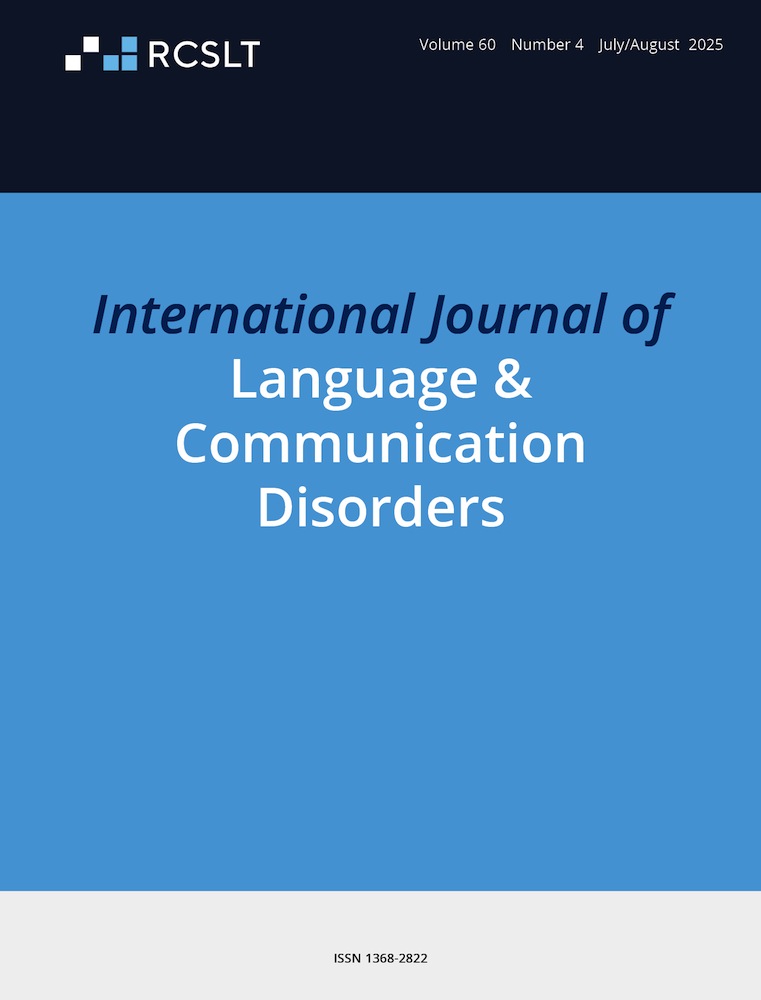Culturally Responsive Practices Among Speech–Language Pathologists in Saudi Arabia: Knowledge, Skills, Training Experiences and Attitudes
Funding: This work was funded by the University of Jeddah, Jeddah, Saudi Arabia, under grant No. (UJ-23-SHR-76). Therefore, the author thanks the University of Jeddah for its technical and financial support.
ABSTRACT
Background
Saudi Arabia (SA) is a culturally and linguistically diverse nation, with 41.6% of its population comprising non-Saudis from varied backgrounds. This diversity emphasizes the importance of culturally responsive practices (CRPs) in addressing the distinct needs of multicultural individuals. Within SA, speech–language pathologists (SLPs) often encounter clients from different cultural and linguistic backgrounds, requiring tailored approaches to assessment and intervention. Despite the importance of CRPs in ensuring equitable and effective SLP services, no known studies have explored CRPs among SLPs in SA.
Aims
This study aimed to explore the training, attitudes, skills, knowledge and facilitators related to CRPs among SLPs in SA.
Methods and Procedures
SLPs in SA were invited to participate in this mixed-methods study through an electronic survey. The survey consisted of 27 questions designed to gather information on demographics, training, attitudes, skills, knowledge and facilitators related to CRPs. Responses were collected over 6 weeks. Quantitative data were analysed descriptively, while qualitative data were examined using inductive content analysis to identify themes and subthemes.
Outcomes and Results
Findings showed that SLPs in SA had positive attitudes towards CRPs and reported confidence in their CRP-related skills. However, responses revealed three areas of CRP-related knowledge that need further development: health literacy, understanding specific disorders and diseases with higher prevalence in different ethnic groups that contribute to speech and language issues, and the impact of acculturation on communication. Most participants reported receiving training related to CRP concepts. Additionally, four themes were identified as facilitators to enhance the implementation of CRPs.
Conclusions and Implications
Overall, SLPs in SA reported positive attitudes towards CRPs and self-reported confidence in applying CRP-related skills, suggesting potential competency in serving diverse clients and students. However, specific areas of CRP knowledge require further development, highlighting the need for targeted training in the future. Researchers are encouraged to consider the identified facilitators and explore how implementing these practices may impact service delivery and client experiences.
WHAT THIS PAPER ADDS
- CRPs are widely recognized as essential in SLP to ensure equitable and effective service delivery for multicultural individuals. Previous studies have highlighted the importance of cultural considerations in healthcare and education fields; however, these have primarily focused on other professions rather than SLP. In SA, research has noted challenges related to the shortage of culturally and linguistically relevant tools, leading SLPs to create informal alternatives. However, no known studies have examined the training, attitudes, skills, knowledge and facilitators related to CRPs among SLPs in SA.
- This study offers insights into CRPs in SLP practice, emphasizing areas for improvement and facilitators for growth. It explores academic and professional dimensions to identify factors that strengthen CRP practices, including areas for further knowledge development and facilitators encountered by SLPs. Furthermore, the findings address a critical gap in the literature by providing a clearer understanding of SLPs' attitudes, skills and knowledge related to CRPs in SA. The study also contributes to global discussions on CRPs by offering an SLP perspective to inform responsive approaches, enhance the implementation of CRPs, and inspire future research in diverse regions and fields.
- To enhance CRPs among SLPs in educational and medical settings, it is necessary to strengthen CRP-related knowledge. This enhancement promotes more personalized services and better communication outcomes for clients and students from diverse backgrounds. Additionally, this study identified key facilitators that support the effective implementation of CRPs, further improving the quality of SLP services for individuals from diverse cultural and linguistic backgrounds.
Conflicts of Interest
The authors declare no conflicts of interest.
Open Research
Data Availability Statement
The participants of this study did not provide consent for their data to be publicly available or shared with external parties. Due to ethical considerations and the potential for participant identification, the raw data are not available for public access. However, de-identified data are available from the corresponding author upon reasonable request for one year from the date of publication.




